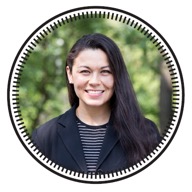Dr. Leslie Gonzales presents "The presence and purpose of relationships in academic careers: Learning, living, and finding validation in academia"
In this Center Speaker Series session, Dr. Leslie Gonzales will discuss her work exploring the role of colleagueship in the lives of faculty members.
 Dr. Leslie Gonzales, Assistant Professor, Higher, Adult, and Lifelong Education, Michigan State University
Dr. Leslie Gonzales, Assistant Professor, Higher, Adult, and Lifelong Education, Michigan State University
The presence and purpose of relationships in academic careers:
Learning, living, and finding validation in academia
Thursday, November 12 from 2:30 pm - 4:00 pm
Erickson Hall Room 252
A higher education scholar whose work focuses on the academic profession, Gonzales will explore the role of colleagueship in the lives of faculty members employed across various types of post-secondary institutions. Although the concept colleagueship and collegiality are considered marks of the academic profession, higher education scholars have very rarely studied colleagueship in faculty careers that unfold outside of major research universities. Gonzales will discuss how faculty members in multiple settings, including community colleges and comprehensive universities, leverage and lean on relationships with colleagues for myriad reasons, but consistently in ways that advance their learning and growth as professionals. In exploring these findings, Gonzales will pay special attention to the role of colleagues in the lives of women faculty members serving in the comprehensive and research university sectors. Gonzales argues, in the spirit of Martinez-Alemán’s (1997; 1999) theory of educative friendship, that women academics turned to colleague-friends to try out new ideas, to take intellectual risks, or simply for validation. Implications for practice will be reviewed and Gonzales will preview a new research project that has grown from these findings.
Leslie D. Gonzales is an assistant professor of higher, adult, and lifelong education. Gonzales’s research agenda consists of three overarching lines of inquiry: (1) legitimacy within the academic profession and the broader field of higher education; (2) transnational relations of power that govern the recognition of knowledge and knowers; and (3) the possibility of agency, among academics, to negotiate, remake, or resist marginalizing structural and cultural features of academia. To date, Gonzales’s work has been published in The Journal of Higher Education, The Review of Higher Education, Higher Education, The Journal for Higher Education Engagement and Outreach, and Educational Policy Analysis Archives among other outlets. Gonzales currently serves on the Editorial Board for The Journal of Higher Education and The Review of Higher Education, and reviews for several academic journals. Gonzales is a first-generation, working class student-turned academic, and earned all three academic degrees from Hispanic-Serving Institutions, including New Mexico Highlands University and The University of Texas at El Paso.



